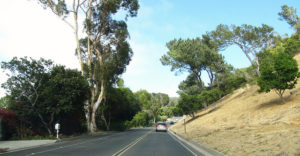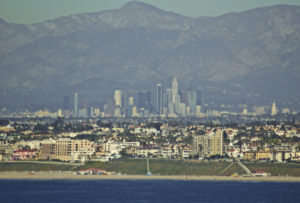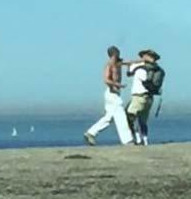
Continue reading City Of Palos Verdes Estates Tells Federal Court That One Of The Plaintiffs’ Experts Ain’t Expert Enough, Other Documents Filed Including Many Responses To Interrogatories


Well, just one day after I decided to add Cory Spencer v. Lunada Bay Boys to my PACER watchlist, an avalanche of opposition to the plaintiffs’ motion to have the thing turned into a class action suit hit the RSS feed. It’s all pretty interesting, and I have uploaded it all to the Archive.Org page that I made yesterday to host all this stuff on. There is a list of new items with links after the break, but the common theme of many of them, as exemplified in the Objection to Plaintiffs’ Evidence in Support of Motion for Class Certification, a 112 page behemoth with which most if not all of the individual defendants seem to have joined in, seems to go something like this:
The City of Palos Verdes Estates (PVE) along with their Chief of Police take a slightly different tack in e.g. their opposition to the motion for class certification. Their theory seems to be that since one plaintiff said something nice about the PVE cops in 2016, they must be innocent all the way back to 1966. Perhaps that even makes sense (?!)
In any case, the hearing on this is scheduled for Tuesday, February 21, 2017 in the brand new shiny beautiful 1st Street Courthouse in Courtroom 10C. Perhaps I’ll see you there. As mentioned above, turn the page for a list of links to newly filed items.1 Continue reading Lunada Bay Boys Tell Federal Court “We Don’t Even Exist So How Can They Sue Us??!” — Defendants’ Oppositions To Motion For Class Certification Filed In Palos Verdes Estates Surf Localism Thuggery Case

Of particular interest are twenty declarations made by various victims of the Lunada Bay Boys over the years, collected by the plaintiffs in support of their motion to certify the suit as a class action, which document endless sordid details of the astonishing violence and idiocy of the Lunada Bay Boys over multiple generations and many decades, as well as the complicity of the police and city government of Palos Verdes Estates. This material is so interesting that I made these twenty documents into a single eBook, with a table of contents and pagination and so on, to make them easier to read on a tablet or whatever. You can download a copy of that here from the Archive. Here are a couple examples of what’s in there, and there are plenty more after the break.
From the Declaration of John Macharg:
I was surfing Lunada Bay the morning of Jan. 29, 2016. The waves were big and my surfboard leash broke. My surfboard drifted to shore by the rocks near the patio. When I reached my board, David Melo walked down the patio stairs and immediately started harassing me by making statements like “You only come around here when the waves are good.” I responded by telling David that he had no right to question how or when I surf the Bay and that localism in general was wrong headed, unfair and illegal. At that point, Sang Lee butted in and began to argue with me. I told Sang that Lunada Bay was public property and did not belong to him. Sang poured out a portion of the beer that he was holding onto my head. I asked Sang if he was trying to start a fight and said “There is a cop right here.” Sang replied “It’s just beer.” There were several officers on the patio deck and one was observing from just a few feet to my right while I argued with Sang and David.
From the Declaration of John Carpenter (31 years on the Riverside PD):
During our walk down to the beach at Lunada Bay [in 1983 or 1984], we did not encounter many people. However, once we paddled out, we experienced Lunada Bay’s localized culture firsthand. There were about 6 surfers in the water, all of whom were male. Almost immediately after we paddled out, the other surfers started yelling at us, saying “you guys don’t belong here” and “get out of here.” They also called us names and cursed at us. These surfers also aggressively violated surf etiquette – they would drop in on my waves and cut me off. This behavior was dangerous because it required me to pull off a wave, which could have resulted in the waves pummeling me or could have caused me to crash into the nearby shallow rock reef. The experience was frustrating and dangerous because I risked getting injured by a Bay Boy each time I tried to surf a wave.
After about 45 minutes of suffering from the Lunada Bay Boys’ harassment, Sue and I felt too uncomfortable so we decided to leave. When we got back to the car, we discovered that Sue’s car antenna had been mangled and that someone had vandalized the car by smearing surf wax on it. They wrote derogatory words about Sue being a woman. Based on my friends’ experiences and my 45 minutes of trying to surf at Lunada Bay, I was almost positive that the Lunada Bay Boys were responsible for this vandalism.
Due to this negative experience, I have not returned to surf Lunada Bay. When I recently heard that the intimidation and exclusionary behavior at Lunada Bay is still occurring – more than 30 years after I experienced it firsthand – I was shocked. As a law enforcement professional, I know that the conduct taking place at Lunada Bay is no different than criminal gang activity. Like a criminal gang, the Lunada Bay Boys have taken over a public place and use intimidation tactics to scare others to stay off their turf.
In response to this conduct, the City of Palos Verdes Estates’ police should have taken action to address the issues and treat the situation like a gang injunction. For example, they should have set up cameras, conducted surveillance, and prosecuted wrongdoers based on the complaints they received. Instead, the City and the police ignore the complaints or take down reports of aggression but then fail to follow up and investigate and prosecute the wrongdoers.
Continue reading Declarations In Federal Lawsuit Over Lunada Bay Surf Localism Reveal Shocking Details Of Decades-Long Reign Of Terror By Multiple Generations Of Zillionaire Palos Verdes Thugs — Exclusive Free eBook Available Now